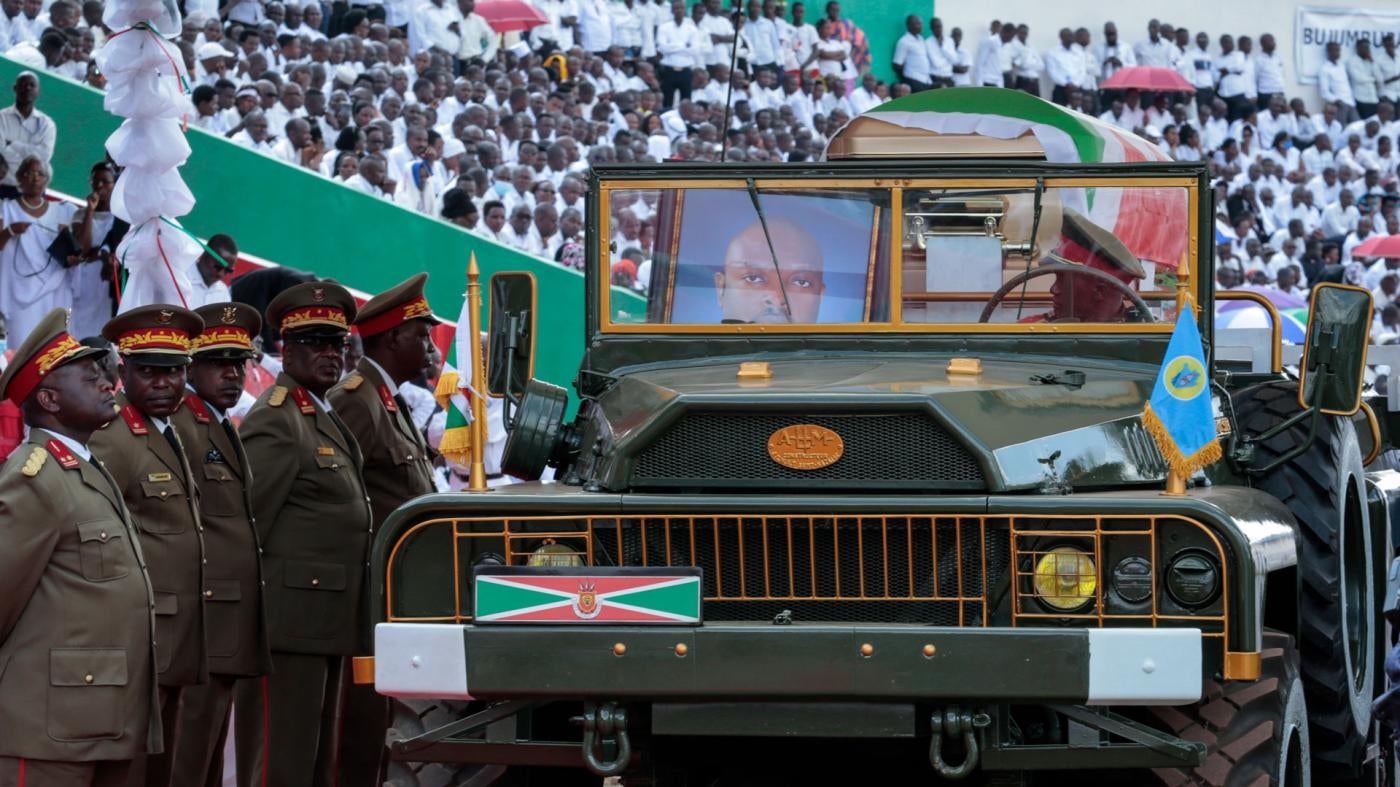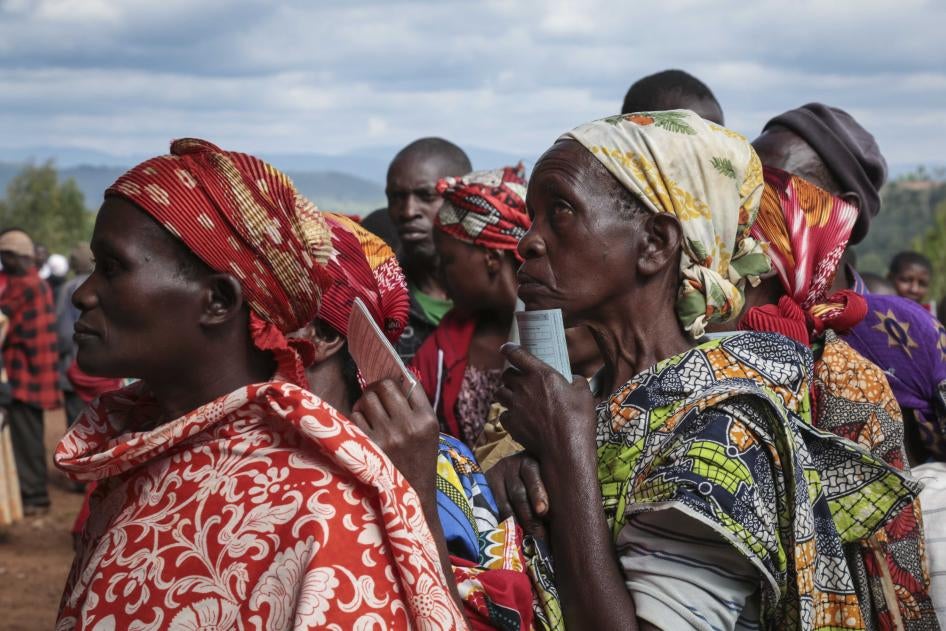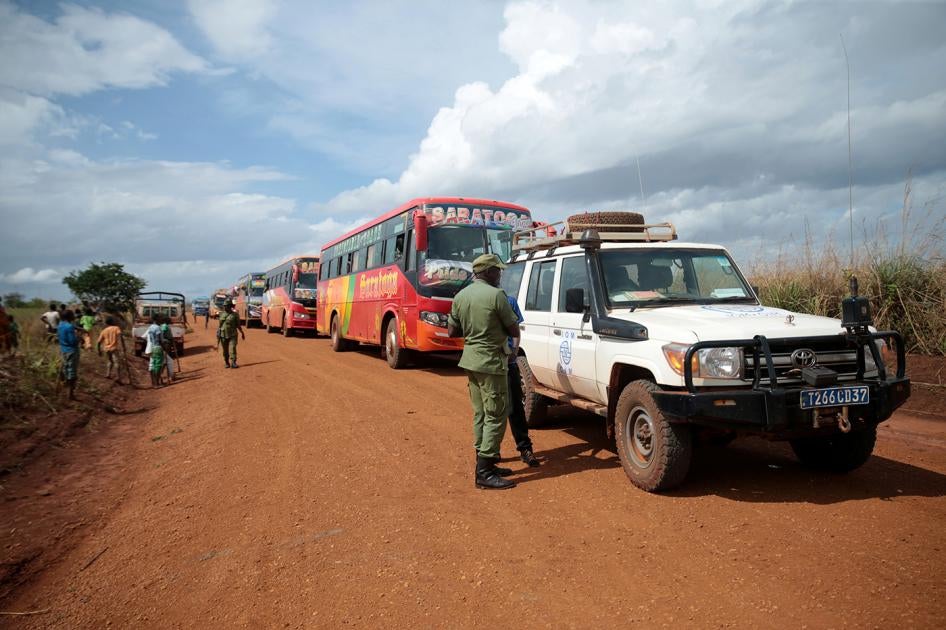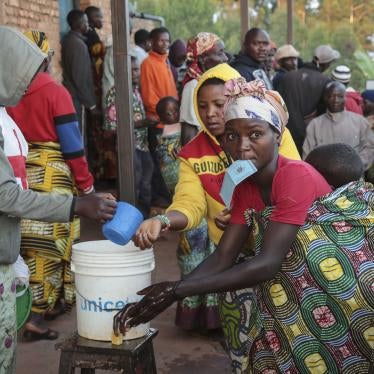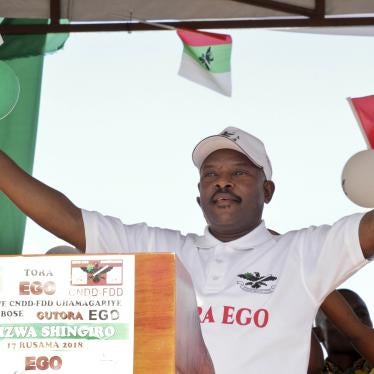The sudden death on June 8 of Burundi’s President Pierre Nkurunziza creates an opportunity for the small Central African country to break with its past. Nkurunziza had governed Burundi for 15 years and seemed determined to continue ruling from behind the scenes even after a new president was elected this May. His decision in April 2015 to run for a third term triggered protests and plunged Burundi into a crisis of escalating violence and repression. Thousands of perceived political opponents have been killed or disappeared by security forces and members of the ruling party’s youth league, known as the Imbonerakure. Hundreds of thousands have fled to neighbouring countries. The new president, Évariste Ndayishimiye, inherited weakened state institutions, a context of impunity, a precarious economy, and a pandemic. Birgit Schwarz talks to Human Rights Watch’s Central Africa director Lewis Mudge about whether the election of a new government and Nkurunziza’s death could finally lead to democratic change and accountability.
What does the death of Burundi’s long-term president Pierre Nkurunziza mean for the country?
His death comes at a politically charged time. Elections began in May amid allegations of election fraud, vote rigging, and rights violations. Having come to power towards the end of Burundi’s civil war, that killed an estimated 300,000 people, Nkurunziza shaped the last 15 years of the country’s post-war history. Before 2015, Burundi was making progress – albeit fragile – toward democratization. Today, with most donors having suspended any direct financial support in response to escalating human rights abuses, Burundi is isolated, and facing extreme poverty.
With a new president in place, the country has the opportunity to break with the past. At the end of the day, however, the repressive system Nkurunziza put in place remains firmly entrenched. Two newly appointed senior government officials – the prime minister and interior minister – are on international sanctions lists for their alleged role in abuses since 2015.
What then is to be expected of the new president, Évariste Ndayishimiye?
Ndayishimiye belongs to a small group of generals who fought during the civil war and who have been controlling the country ever since Nkurunziza was elected in 2005. Before he was put forward as a presidential candidate, he was the secretary general of the ruling party, the National Council for the Defense of Democracy – Forces for the Defense of Democracy (Conseil national pour la défense de la démocratie-Forces de défense de la démocratie, CNDD-FDD) since 2016.
Since 2015, members of the Imbonerakure, together with security forces, have been carrying out extrajudicial killings, arresting people arbitrarily, and raping, threatening, and harassing those who they perceived to be political opponents.
Ndayishimiye did talk during his swearing in ceremony about the need to hold government officials to account for crimes they commit. But he also pledged to follow in the footsteps of his predecessor, and openly expressed hostility towards the international community and their human rights concerns. It’s overly optimistic to think he will initiate reforms to address the abuses of the Imbonerakure, and that justice will be allowed to follow its course without interference. But he might consider some degree of reform to open up the economy again.
His most immediate problem, however, is the Covid-19 pandemic. So far, the truth about how badly the country has been affected has been a carefully guarded secret. We are hearing a lot of reports of people suspected of having Covid-19 coming into hospitals and dying. Yet doctors are too afraid to talk about these cases and have told us that information is deliberately suppressed. Under Nkurunziza the repression didn’t just apply to the political sphere, it extended to the humanitarian and health crises. One of the new president’s first policy actions, however, was to recognize the threat the virus presents and to announce measures to address the pandemic. This is a significant step forward.
One of Ndayishimiye’s campaign promises was to allow refugees back. Can we now expect the return of the more than 330,000 Burundians who fled to neighboring countries?
Many of these people did not leave Burundi by choice. They fled Burundi because they did not feel safe. Many have either been victims or witnessed crimes committed by Imbonerakure members, state security forces, or local administrators. While it’s a good thing that Ndayishimiye has made the return of refugees a priority, he needs to put in place systems that will ensure their protection. The only way to persuade refugees to return is to address the systemic human rights problems in Burundi and to hold those who committed the serious abuses that drove refugees out accountable.
What reforms are needed in Burundi to restore trust?
Concrete steps towards democratization, such as restoring the rule of law, and ensuring that an independent justice system can investigate and prosecute abuses by state agents and the Imbonerakure are urgent. The government should allow independent civil society and media to operate freely and allow those in exile to return safely. Political prisoners should be immediately and unconditionally released, the independence of the judiciary should be restored, and independent international and regional human rights observers and investigators should be granted access to the country. These steps would go a long way to put the country back on track, and they are certainly steps the international community should push for.
What can the international community do to further reforms?
Now is the time for the international community to engage and press for concrete change. The African Union and the African Commission on Human and Peoples’ Rights should send a follow up fact-finding mission to assess the human rights situation in the country. The East African Community, which has taken a backseat to the crisis, should step up its engagement and urge Ndayishimiye to change course. Donors such as the European Union, which in 2016 suspended any direct financial support for Burundi’s government in response to the surge in politically motivated violence, should use their leverage to press for concrete steps towards restoring respect for human rights.
Given that the new president is unlikely to offer a clean break from the past, what other avenues exist to ensure accountability?
Given that those who were in power during the worst repression in 2015 and 2016 are still in power today, we cannot realistically expect a shift in attitude. When the International Criminal Court (ICC) in 2016 initiated a preliminary investigation into possible crimes against humanity in Burundi, the country became the first to ever leave the court. Presently, a United Nations Commission of Inquiry is the most important mechanism conducting in-depth investigations although Burundi won’t let its team into the country. Its annual reports provide vital information about the situation in the country. These and the ICC’s investigations could play a significant role in future accountability efforts.
